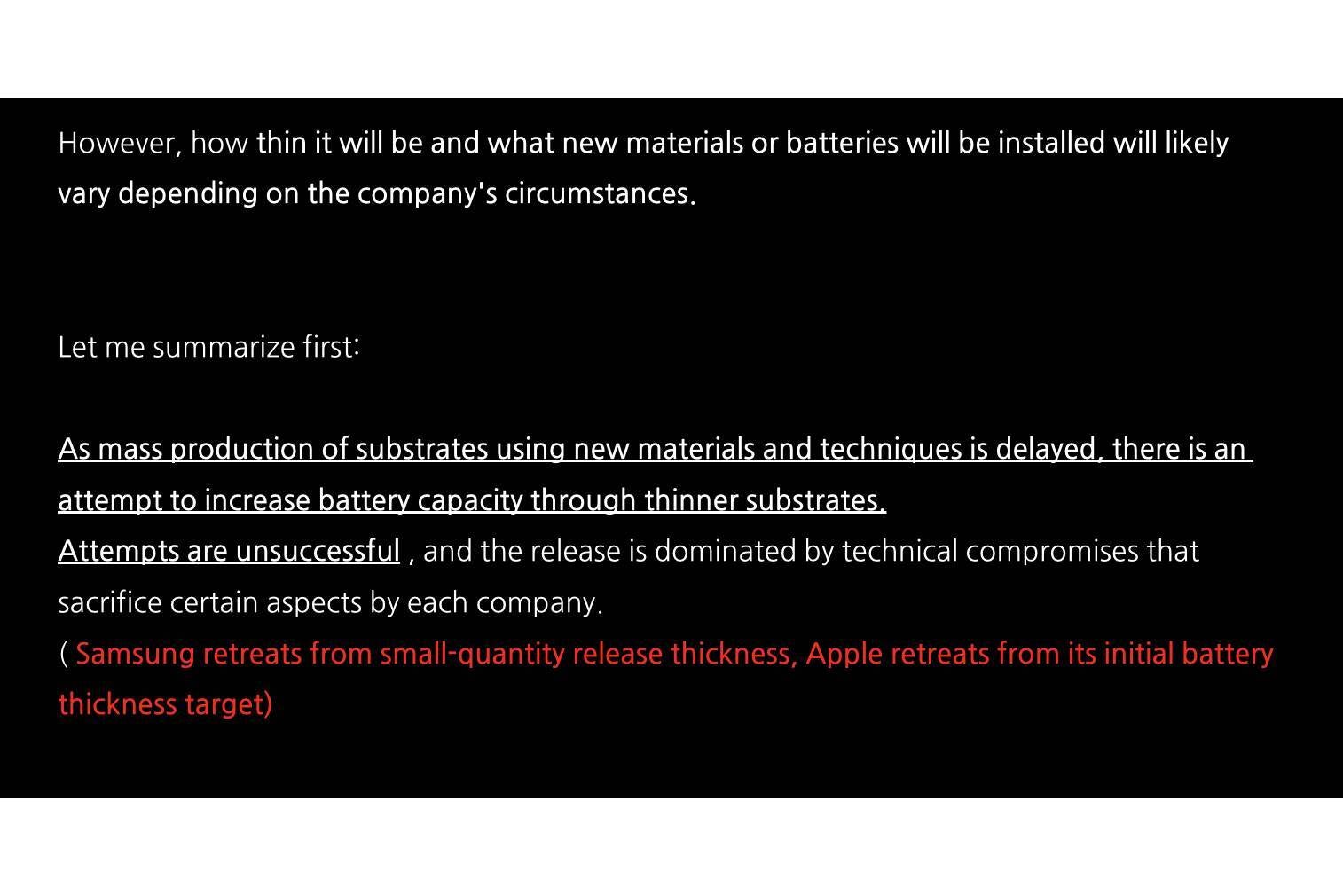Per a rumor from leaker Yeux1122 first picked up by Jukanlosreve, Apple and Samsung have both failed at their attempts to reduce battery thickness. The companies were allegedly planning on using new materials and thinner substrates, presumably to reduce battery footprint whilst maintaining a reasonable capacity.

Battery challenges mean the iPhone 17 Air and Galaxy S25 Slim won’t be as thin as previously expected. | Image Credit – Yeux1122
This has turned out to be more difficult than either company anticipated, and the new approach comes with hurdles that can’t be overcome.
That’s why, the two have decided to tamp down their ambitions and make some technical compromises.
Samsung will allegedly only be producing the Galaxy S25 Slim in limited quantities. Both companies are going to stray from their original goals and go for bigger batteries, which would lead to an increase in the thickness of their phones.
Apple was initially aiming for a 6mm thick phone, which would have made the iPhone 17 Air noticeably slimmer than the 7.8mm thick iPhone 16.
The slim handsets will likely still be thinner than Apple and Samsung’s current offerings.
According to earlier reports, the iPhone 17 Air will sport a 6.55-inch screen with a 120Hz refresh rate, a frame made of titanium and aluminum, a smaller cut-out for front-facing sensors, a single 48MP back camera, and the rumored A19 chipset.
Similarly, the Galaxy S25 Slim is expected to be a premium phone with a 200MP main camera.
The leak makes it very clear that the batteries, which are central to the thin design, will be manufactured using the existing technologies, and this makes you wonder whether it might be a better idea to delay the phones until a new battery tech is ready.
Otherwise, if the phones are going to be barely thinner than the top handsets available today and offer a disappointing battery life, buyers are hardly going to be wowed by them.

